- 1 hour ago
- Asia
A cleaning lady in Thailand is being charged by the government for posting the words "I see" on Facebook. She is accused of insulting the monarchy - a charge that can lead to jail sentences of up to 15 years. However, she says she is being punished because her son is an activist, as the BBC's Jonathan Head reports.
Patnaree Chankij's home on the outskirts of Bangkok is a cramped, three-room house in which the 40-year-old widow lives with two of her children, and where she often does other people's laundry to make ends meet. At other times she works as a casual cleaner in apartments and offices.
As in other houses in Thailand, there are portraits of King Bhumibol Adulyadej on the walls. Patnaree considers herself a loyal citizen, and says she has never said anything negative about the royal family.
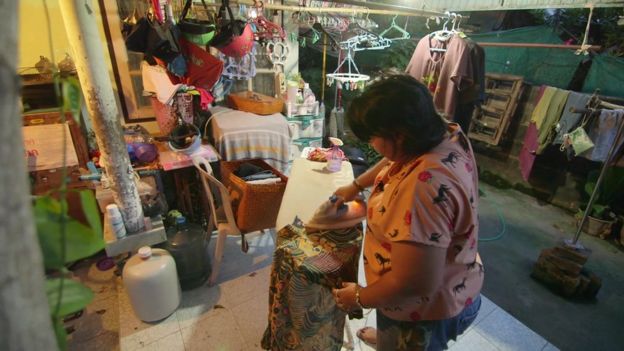
But earlier this month she was detained by the police and charged with lese majeste, insulting the monarchy, one of the most serious charges in the Thai criminal code. It carries a penalty of three to 15 years on each count and its use has escalated after the military coup two years ago.
More than 60 people have been charged since then. Most of the cases are now heard in military courts, which restrict the rights of defence. Often they are heard in secret, with journalists finding out about them weeks later, if at all.
Sentences are harsh. Last year a mother of two was given a sentence of 56 years for comments she made on Facebook - later halved after she pleaded guilty.
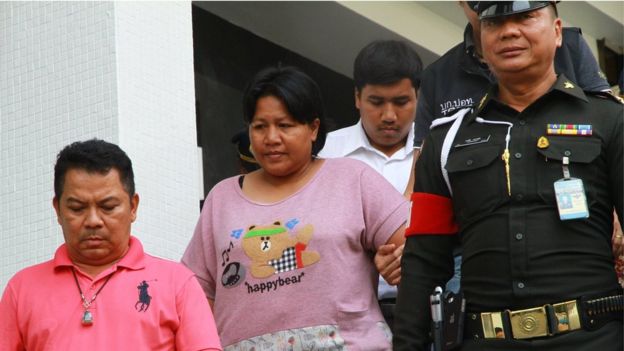 REUTERS
REUTERS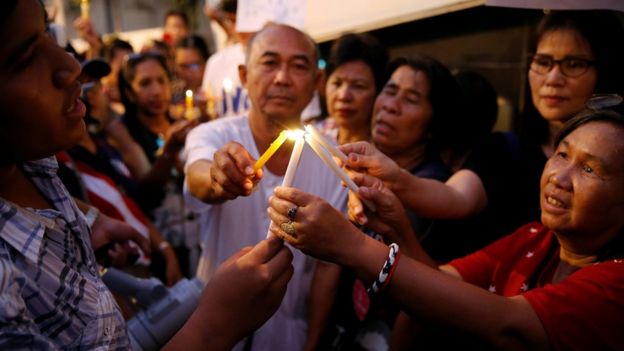 REUTERS
REUTERS
So what did Patnaree do to get charged? According to her lawyer, the only evidence the police have produced is an exchange on Facebook between her and a political activist, in which she responded to comments the police say are defamatory with the Thai word "ja", which translates as "I see", or "ok".
The police say she should have condemned the comments.
Patnaree does not believe she has been charged over anything she said or wrote. She believes it is because of her son, Sirawith (which translates as New) Seritiwat.
He is a political science student at Thammasat University, but over the past two years he has also emerged as the best-known face of student dissent against military rule.
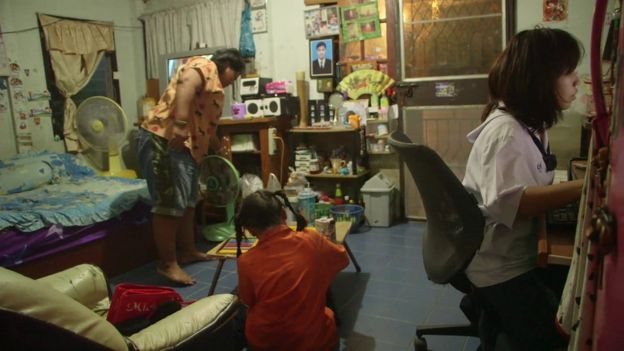
Right after the coup, as part of two groups called Resistant Citizens and Thai Student Centre for Democracy, he joined protests against the new government, using symbols like the three-fingered salute from the film series Hunger Games and reading George Orwell's classic novel 1984 in public.
Last year they held a mock election outside a central Bangkok arts centre. Then they organised a protest train ride to a controversial royal-themed park, which had been built by the army, allegedly through some corrupt contracts.
The groups now call themselves the New Democracy Movement.
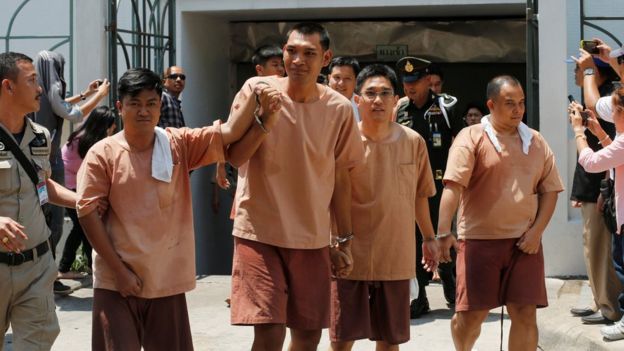 REUTERS
REUTERS
Although their demonstrations have been small, these activists are the only group openly challenging the military in Thailand. The so-called "red shirt" mass movement, which backed the government ousted by the coup, has largely been silent.
The army has responded by detaining the students and putting them through what it calls "attitude adjustment", where they are pressured to change their views.
More recently, the army has hardened its stance, filing criminal charges against some of the activists. Sirawith has been detained several times and charged twice, although he has not yet been tried.
Now the military government is preparing to introduce a new constitution which will enshrine military dominance of politics for many more years. It would allow elections to take place as early as next year, but the charter weakens the power of elected governments and gives more power to a military-appointed senate, and to the conservative higher courts.
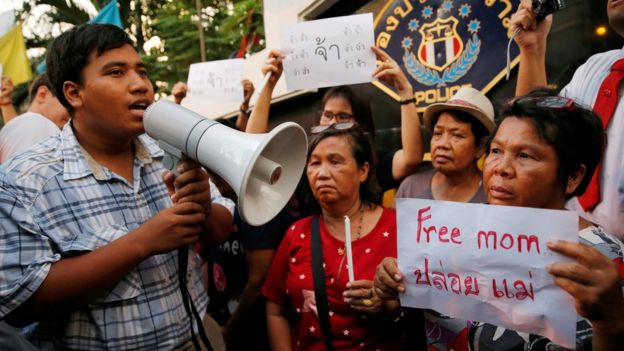 REUTERS
REUTERS
The junta has promised a referendum on the constitution on 7 August, but with supporters of the ousted government likely to be hostile to a charter which would in all likelihood block their party from returning to power, the military has banned all campaigning against it.
Those who try to sway public opinion are threatened with 10-year prison sentences.
At the same time, thousands of government officials are being trained to go out and inform the public about the constitution, and to persuade them to vote.
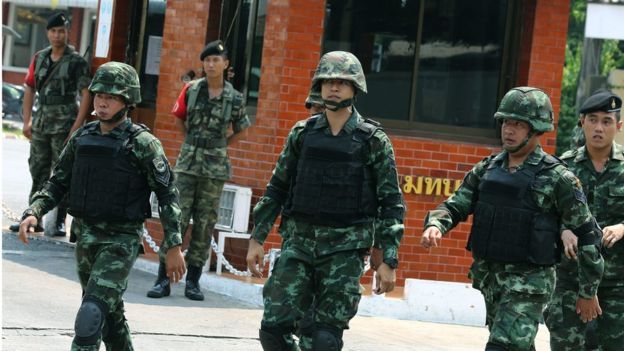 EPA
EPA
In that way the military hopes to win the August vote. Losing it would be a serious blow to the credibility of a government which has always insisted that most Thai people support its plans to restructure the country. It is not a result the military will leave to chance.
Activists like Sirawith Seritiwat are a threat to that strategy, and in the weeks leading up to the referendum the soldiers are sure to redouble their efforts to stifle dissenting voices.

No comments:
Post a Comment